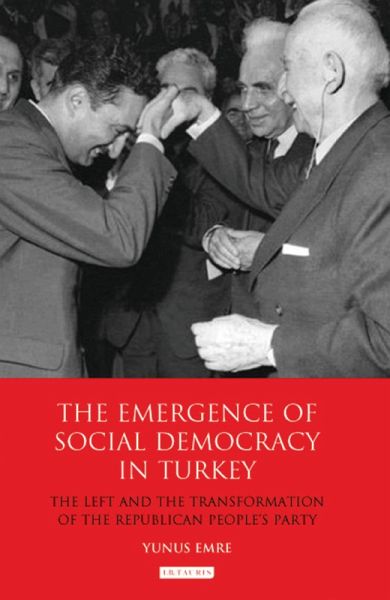
The Emergence of Social Democracy in Turkey (eBook, ePUB)
The Left and the Transformation of the Republican People's Party
Versandkostenfrei!
Sofort per Download lieferbar
108,95 €
inkl. MwSt.
Weitere Ausgaben:

PAYBACK Punkte
54 °P sammeln!
The Republican People's Party (RPP), also know as the CHP (Cumhuriyet Halk Partisi), stands as the main opposition party - one of two major political currents, second only to the Erdooan's AK Party. Established as the founding party of Ataturk's republican regime, the RPP has a history of hostility of leftist parties. Despite this, by the mid-1960s, the RPP had re-orientated itself as left of centre, as the growing influence of the left inside the RPP pushed it in a new direction. This is hailed as the entry point of social democratic politics into Turkey, and is the focus of Yunus Emre's impr...
The Republican People's Party (RPP), also know as the CHP (Cumhuriyet Halk Partisi), stands as the main opposition party - one of two major political currents, second only to the Erdooan's AK Party. Established as the founding party of Ataturk's republican regime, the RPP has a history of hostility of leftist parties. Despite this, by the mid-1960s, the RPP had re-orientated itself as left of centre, as the growing influence of the left inside the RPP pushed it in a new direction. This is hailed as the entry point of social democratic politics into Turkey, and is the focus of Yunus Emre's impressively researched book. Through extensive primary research, Emre tracks the fluctuations in Turkish politics from the single-party period to the making of a new regime following the 1960 coup, looking at the place of both the RPP and the left in this trajectory. The RPP's internal struggles in this period, in particular around the working class movement and the legal right to strike, debates over anti-imperialism and land reform, and the role of the military in politics provide the political context into which a new social democratic agenda emerged. Engaging with the body of literature on social democratic movements, Emre analyses the reasons for the 'delayed' emergence of social democracy in Turkey. He argues that the absence of European style social democratic formations in Turkey can be traced back to the developments around the adoption of a left of centre position by the RPP. From the 1960s to the present, the RPP has oscillated between a social democratic position and its Kemalist roots in the early republican single-party regime - this book analyses the fundamental point of change in this process. It is essential reading for scholars of Turkish politics and modern history, providing insight into the development of Turkey's founding political party, the left and social democratic movements.













